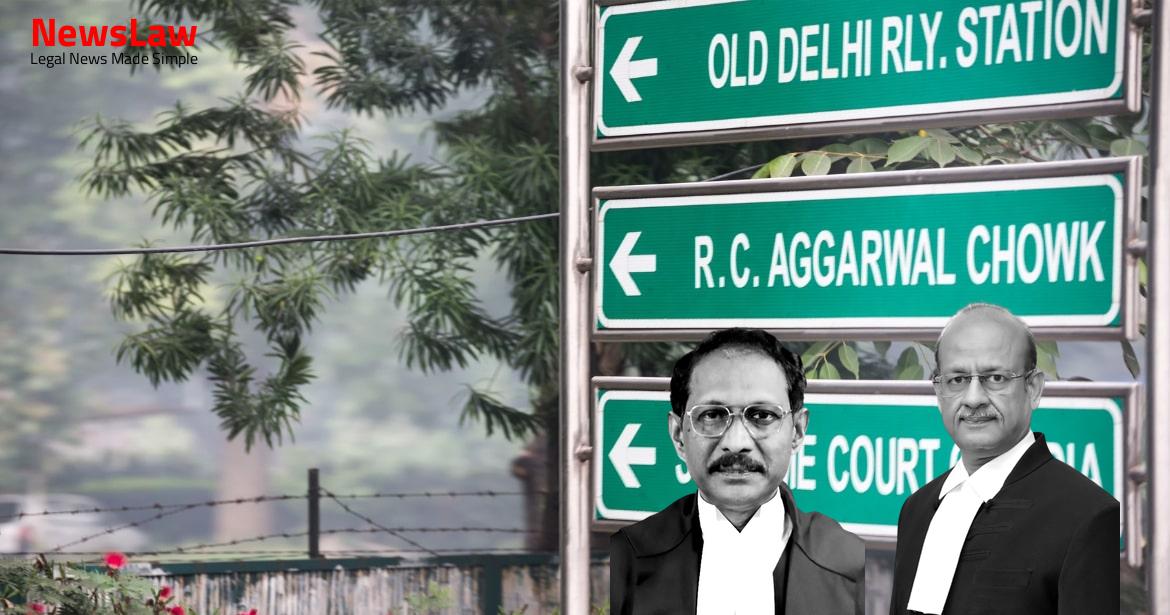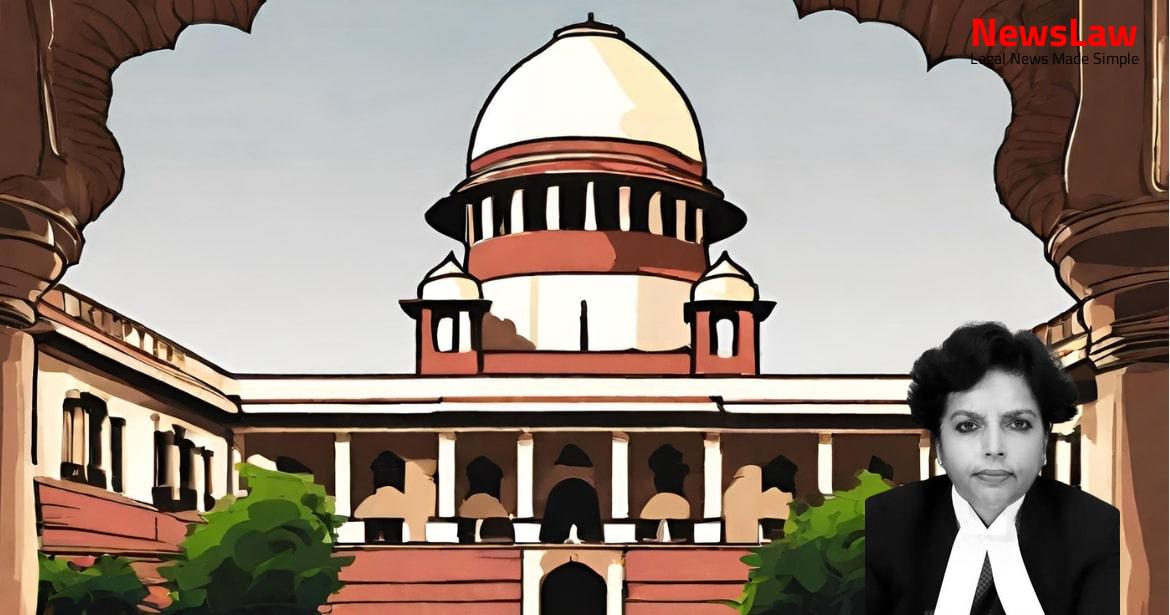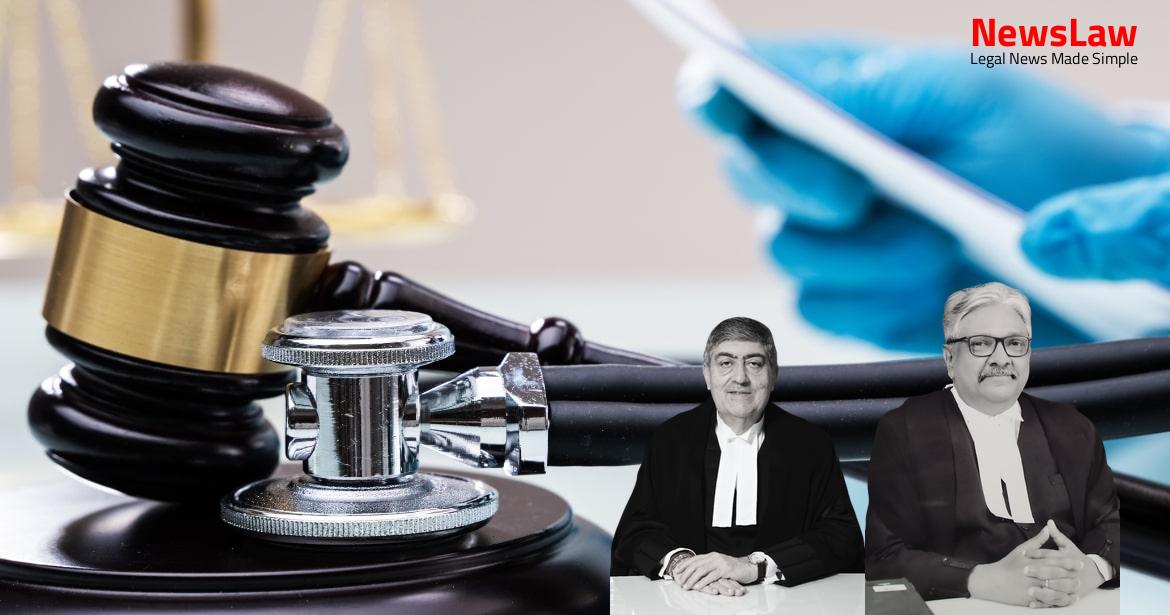In a landmark case before the Supreme Court of India, T.R. Vijayaraman and B. Kanagarajan stand as petitioners against the Central Bureau of Investigation (C.B.I.) and Indian Bank. The judgement, upholding their conviction for fraudulent transactions, sheds light on the consequences of financial malpractice. This case serves as a stark reminder of the importance of upholding integrity in financial dealings and holds significant implications for future legal proceedings.
Facts
- Petitioner T.R. Vijayaraman found guilty of offenses under Sections 120-B and 420 IPC, sentenced to 5 years rigorous imprisonment and a fine of ₹5,000
- Petitioner B. Kanagarajan also found guilty of offenses under Sections 120-B and 420 IPC, sentenced to 5 years rigorous imprisonment and a fine of ₹5,000
- FIR No RC MA1 2004 A 0061 dated 27.09.2004 registered by C.B.I. under various sections of IPC and Prevention of Corruption Act, 1988 at Chennai.
- Fraudulent transactions made by accused in connivance with bank officers at Indian Bank, Srirangam Branch, Trichy.
- 14 accused in total, including 4 bank officials and 10 private businessmen.
- Unauthorised debits made in external clearing account and local drafts accounts by bank officers, credited to different parties to offset unauthorised temporary overdraft.
- Transactions in September 2002 led to interest-free advances to petitioners.
- Inspection by senior bank officers on 09.01.2004 revealed fraudulent entries of ₹1,10,66,100/- for 10 borrowers including petitioners.
- Conviction upheld by Trial Court and High Court based on fraudulent entries.
- No negotiable instrument submitted for the fraudulent transactions.
- Temporary overdrafts not reported to head office by the bank.
- Immediate deposit of payment by bank manager after inspection.
Arguments
- The petitioners raised the argument that there were 5 separate trials of the accused.
- Security was provided when overdraft facility was granted.
- The petitioners were not directly involved in the cheating and it was deemed a normal business transaction.
- Citing the case of A.T. Mydeen and Another vs Assistant Commissioner, Customs Department, the petitioners’ counsel supported their stance.
- No undue benefit had been obtained by the petitioners from the transactions.
- Upon being informed to return the amount, the petitioners promptly deposited the entire sum.
Also Read: Judgment on Aniruddha Khanwalkar’s Complaint against Sharmila Das, Usharani Das, and Sangita
Analysis
- The fraud initiated in 2002 without any instrument submitted for bank clearance.
- Entries made in external clearing and local drafts account to give credit to the petitioners.
- Modus operandi discovered during an inspection in 2004.
- Accused persons deposited the amount after being confronted the next day.
- Advance enjoyed by petitioners without payment of interest.
- Amount deposited after inspection was substantial, indicating wrongdoing.
- Petitioners failed to demonstrate control over bank officials in the entry process.
- No grounds found for granting leave to appeal due to clear entry manipulation.
- All accused worked together to cheat the bank by submitting cheques from accounts with no balance or no submission thereof.
- The bank officers made false entries in the books of account to show the cheques as pending for clearing and gave credit to the accused.
- SLP(Crl.) No. 2722 of 2024 by one of the accused, R. Geetha, was dismissed by the court on 07.03.2024.
Also Read: Anticipatory Bail Application Rejected in Appellants vs. State Case
Decision
- Special Leave Petitions dismissed
- No case made out for grant of leave to appeal
- Petitioners directed to surrender before Trial Court within 2 weeks
Case Title: T.R. VIJAYARAMAN Vs. THE STATE OF TAMIL NADU (2024 INSC 373)
Case Number: SLP(Crl) No.-003787 – 2024



